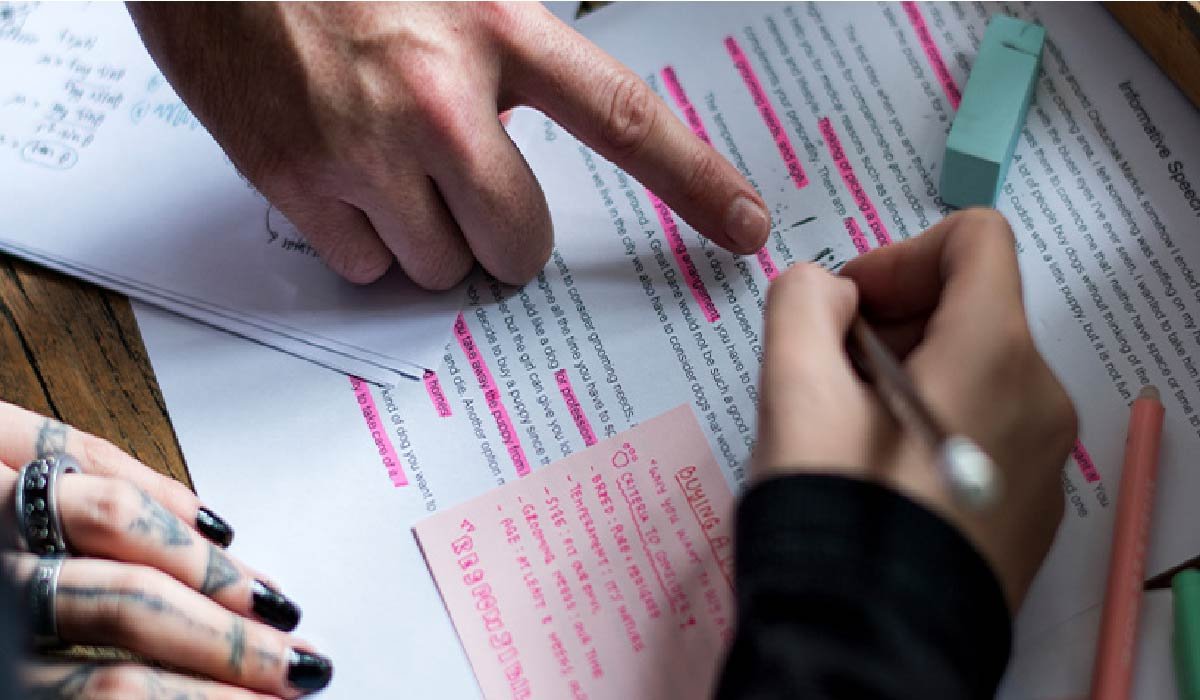This article debunks common myths about whether students or researchers can plagiarise their own work. Read till the end to learn when and how you can ethically reference your previous writings.
Can You Plagiarize Yourself? It’s one of the most intriguing and frequently asked questions by students, and even novice researchers often wonder what’s wrong with reusing their own work for academic or research purposes. Self-plagiarism is a lesser-known form of academic misconduct that many commit unknowingly. They often underestimate the potential damage it can do to their academic integrity and reputation.
Merriam-Webster Dictionary defines self-plagiarism as “the reuse of one’s own words, ideas, or artistic expression from preexisting material, especially without acknowledgement of their earlier use.” Yet, the concept isn’t entirely black and white. There are grey areas where reusing your own work may be allowed, provided you follow institutional guidelines or receive approval from your supervisor.
In this article, we’ll unpack the meaning of self-plagiarism, explore its implications, and identify when reusing your writing is acceptable and when it crosses the line into misconduct.
Let’s dive in and find out when self-plagiarism turns into a black hat!
Can You Self-Plagiarise? Understanding What’s Allowed and What’s Not
The act of self-plagiarism usually occurs when writing an essay at a college or university. Students copy their previously written essays, including headings and paragraphs, without getting noticed by a professor or the educational institute. It becomes more challenging to catch self-plagiarism on paper when it’s in hard form.
However, following academic integrity, it’s essential to always develop new ideas for your essay. If you believe keeping originality in writing will not be possible for you, you may get assistance from online essay writing servicesto get this job done. These writers have in-depth expertise in crafting compelling and original essays for students of any level.
Now, we need to answer some key questions asked by students. These queries are:
- Can you plagiarise yourself in college?
- Can you plagiarise in university?
- How can you plagiarise yourself?
1. Self-Plagiarism in College and University
A question in response to a question isn’t considered a healthy form of argument. But let us ask you a question: Why do you want to copy your previous writing? Haven’t you got any new ideas to write essays that your teacher will love to read? If not, that’s an alarming situation for your academic journey. Remember that self-plagiarism, whether in colleges or universities, is completely forbidden.
Some students believe that copying their work will not be an issue for them because no one will be able to catch it. Attention alert! Many colleges and universities have their academic databases for essays, research papers, dissertations, etc., with whom help they can easily detect this act. That’s why when students get low grades and get shocked as they were not expecting them, somehow believing that the institute will not find self-plagiarism.
In some cases, you are allowed to copy your previous work after meeting certain conditions. These conditions are:
- Granted Permission: Before copying your work or idea, discuss it with your supervisor. If he allows you to repeat it, you may do it after citing your previous work.
- New Idea from the Old One: In case you believe you can write a new essay based on the topic of the previous one, you still have to get permission from your supervisor.
- Institutional Guidelines: Sometimes, institutes allow you to utilise your previous work for a new essay. In that scenario, it will pass some guidelines on to you. You can follow them and write a high-quality essay based on the previous work.
2. Self-plagiarism in Research Papers
The concept of self-plagiarism in articles is a bit similar to essays. Copying own work may seem lucrative and easy for a researcher, believing that he can submit a new paper by paraphrasing his existing one. However, it can damage your reputation as a research scholar, which will be difficult to recover from.
These are some cases when your act will be called self-plagiarism:
- Resubmission: If your paper doesn’t fall in line with the rule set by a research journal, the chances are quite high that it will get rejected. Resubmitting the rejected paper will be called self-plagiarism, or if you don’t make significant changes for revision.
- Copying Paragraphs: Some scholars try to deceive plagiarism-detecting tools and editors by copying or paraphrasing passages from their previous work without citing them. However, tools like Turnitin will detect this act and will lead to penalties, such as a permanent ban on you to submit a new research paper.
- Recycling Previous Data: Using previously collected data is also not allowed for a new research paper. It will be considered self-plagiarism. Don’t think no one will be able to find it. The results of your study indicate that the data was not original.
- Multiple Publications: If you conducted a single research, whether qualitative or quantitative and now are publishing multiple papers based on that, it will be an act of self-plagiarism.
3. Consequences of Self-Plagiarism
The edifice of academia is based on integrity and honesty. Excluding these factors, it will fall immediately, and there will be no new research articles for the upcoming generations. The consequences of plagiarism are not personal but societal. Whether plagiarising your work in the university or research paper, this act will affect the quality maintained in the research sector. Let’s say you are a student copying your previous written essays.
It will not broaden your horizon of looking at things with a critical perspective. Your creativity will somehow come to an end. Similarly, committing self-plagiarism in research papers will halt new and genuine studies from being completed after hard work for months. It shows that you have no interest in producing new and original work. Self-plagiarism when writing a research paper or essay will undermine the integrity of academia and misrepresent your research. Therefore, don’t risk even copying a sentence without citing it.
4. What’s Allowed and What’s Not
The policies of research journals and education institutes are very strict regarding self-plagiarism. They don’t tolerate negligence and may punish you with penalties. Therefore, always read self-plagiarism guidelines and ensure you follow every single one.
However, here are some general guidelines set by most institutes:
- Ensured Citation: You don’t have a choice but to cite your previous work. You can ask your supervisor to learn about the way of citing yourself. The way of citation in different referencing styles, including Chicago, APA, and MLA, will vary. Following the requirements of these referencing styles, you will cite yourself accordingly.
- No Duplication: Self-plagiarism may lead to content duplication when writing a dissertation, thesis, or essay. And institutes can penalise you for this act. Therefore, be aware of duplication even a duplicated paragraph leads to issues that will be difficult to overcome in academia.
Can You Plagiarise Yourself According to APA?
The rules regarding self-plagiarism are the same set by the APA and other educational institutes. The 7th edition of the APA guide clearly mentions that if a writer presents their old work as the original, it is self-plagiarism. This rule applies to every form of content, including assignments, research papers, theses, essays, etc.
The APA 7th edition states that if you want to plagiarise, you must cite yourself. You can easily cite your work in the APA style; here is the guideline: First, write the last name of the author, the initial letter of the first name, the year, the title of the writing, and the university name. You will successfully cite yourself in this way.
Can You Plagiarise Yourself on Turnitin?
Yes, Turnitin can quickly detect uncited previous work, primarily when it is published on a website, book, or research journal. Turnitin is one of the best tools that help in detecting self-plagiarism quickly. Based on the similarity, it will not be difficult for a supervisor or the editor to determine whether a paper has this issue.
Don’t try to deceive tools like Turnitin by paraphrasing your content through AI platforms. These tools are designed to catch such activities quickly. Therefore, be aware before submitting such essays because Turnitin will compare with a vast database containing millions of sources, including books, research papers, and websites.
Can You Plagiarise Yourself in an Exam?
Self-plagiarism isn’t allowed in exams, too. Finding a repetition of answers in your paper can lead to poor grades and sometimes to failure in a subject. Additionally, your school or university can penalise you on that basis. Most institutes employ software to check papers, regardless of their nature, whether Math or humanities.
The software can compare answers with a database and detect the similarity between answers. So, ensure that your answers are unique, even in different subjects. It will not only help you in getting better grades but also enhance your academic reputation. Originality will always be a win-win for you!
Is it OK to Plagiarise Your Own Work?
No, it is not okay to plagiarise your own work because it misrepresents previous content as new. Educational institutes always focus on ensuring originality, and if you don’t follow them, it may lead to violations of ethical guidelines. In case it has become essential for you to use your previous work, you can cite it following the institute and referencing style guidelines.
The respective supervisors and institutes may allow you to reference yourself. However, they will have strict conditions in line. Therefore, it’s best if you check the policies of your institute before you use your previous work. Remember that proper citation of your work will ensure transparency and maintain academic integrity.
Why Can’t You Self-Plagiarise?
Self-plagiarism is wrong because it undermines academic integrity. You present your old work, whether essays or research articles, as new to mislead others. Most scholars believe that the act of self-plagiarism has no citation, it always compromises the integrity of academia. If everyone starts following this approach, there will be serious questions on credibility.
In addition, many educational institutes clearly state in their policies that self-plagiarism will be a breach of ethical standards. Therefore, students must take appropriate measures to avoid it. Following this approach for writing essays is also harmful to students. Their creativity level will not thrive, and they will not develop fresh insights. Avoid self-plagiarism, and it will prevent penalties.
How Do You Prove You Didn’t Plagiarise?
Providing clear citations for all sources is the best way that you can always follow to prevent plagiarism. If every source, including a quotation or passage, has a proper citation, there will be minimum chances of plagiarism. You can use plagiarism detection tools for that purpose, and Turnitin is the best option that you can utilise. It doesn’t only detect plagiarism but also checks the presence of AI in a text of any type.
While writing an essay or research paper, you will need to keep a record of every act, whether collecting data or getting reports from tools. You can present these activities as proof that you didn’t copy other’s work. In some cases, you will also have the option of paraphrasing, but make sure you use distinct wording. In addition, you can also get guidance from your supervisor that can explain whether your text meets the criteria or not.
How Much Self-Plagiarism Is Allowed in a Thesis?
There is no single formula that applies here. Educational institutes have different policies regarding the amount of plagiarism in a thesis. For example, institutes in Asian countries may give you some flexibility regarding self-plagiarism. However, Western countries have strict polices for these issues. Considering both scenarios, it will be in your favour if you try to altogether remove plagiarism from your thesis, whether citing your work or using other studies.
Some sections of a thesis, such as the literature review and methodology, may contain a portion of previous studies but with proper citation. If a large proportion of plagiarism is found in your writing, universities may ask for justification initially, leading to later penalties and rejections. Therefore, make your thesis as plagiarism-free as possible.
How to Avoid Self-Plagiarism?
Avoiding self-plagiarism will not be difficult if you are committed to preventing it. All you need to know is to learn about the policy of your institute. Then, you can discuss this issue with your instructor. They may ask you to properly cite your previous work. Usually, students copy and paste their old writing entirely, which is considered a bad and unethical approach to academia. Plus, don’t fall into the trap of paraphrasing to avoid self-plagiarism.
There are many tools that can easily detect whether a text is paraphrased by AI or not. If found guilty, an institute may reject your thesis or essay, even when you copied only a small section of your previous work. If you think you cannot take precautionary measures to write an authentic paper, then consulting British essay-writing companiescan be your safe side. The writers affiliated with these firms help you write an original and unique essay in no time. So, get these services whenever you want to complete your essay and earn a good grade!
Final Thoughts
Self-plagiarism is an issue you must pay attention to every time you write a thesis or essay. You can take several measures to prevent it, such as following the guidelines of a particular referencing style or discussing this issue with your professor.
However, avoiding self-plagiarism can be an issue if you don’t have in-depth expertise in collecting the data and citing previous studies. Shortly, we can say that you will need to follow several steps to avoid self-plagiarism and other academic issues.
Author Bio
David Root is a professional essayist known for his sharp analytical approach to writing engaging and compelling essays. His writing spans diverse subjects, from philosophy to medical sciences.


















Leave a Reply